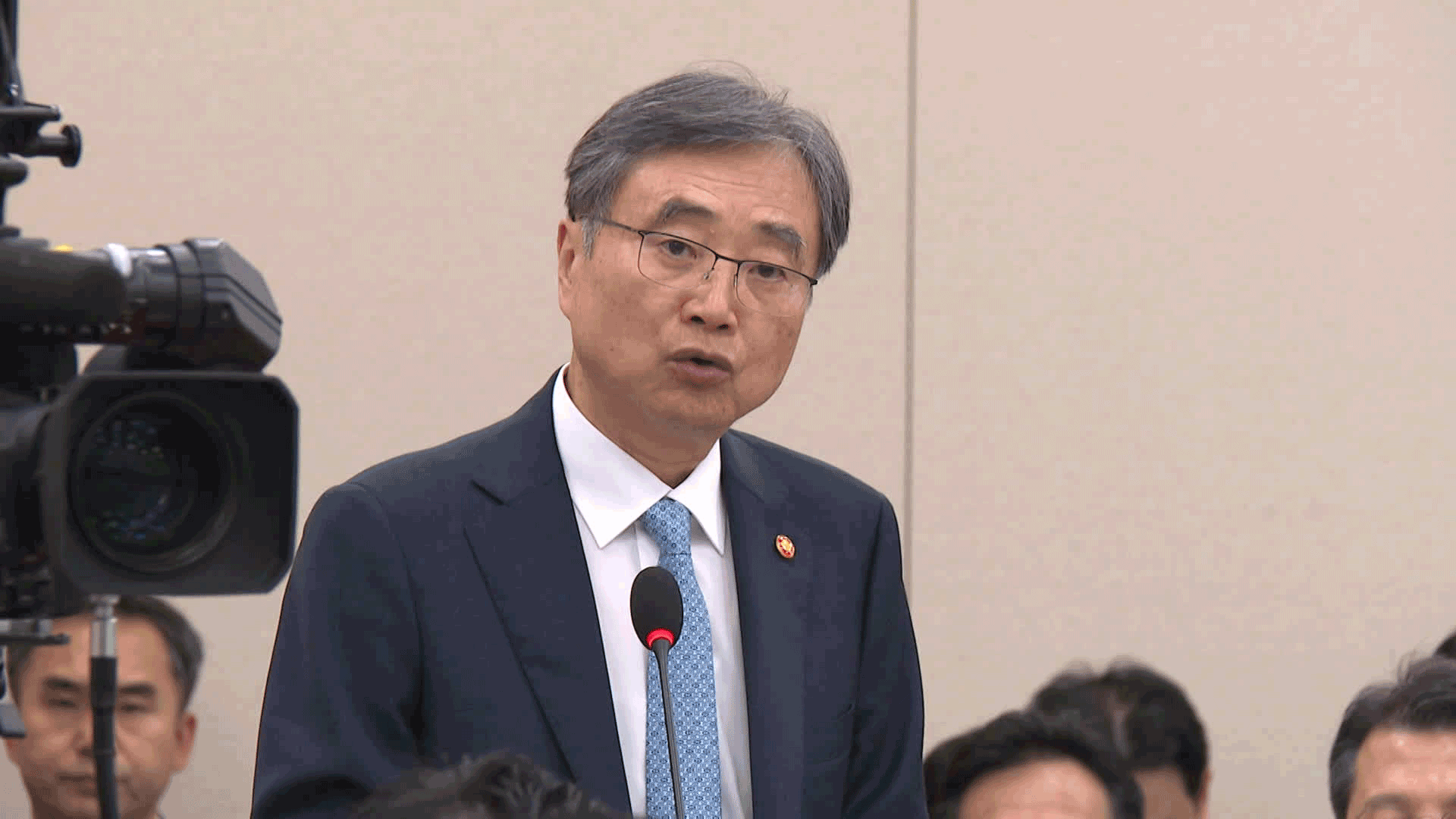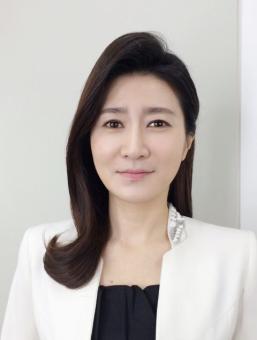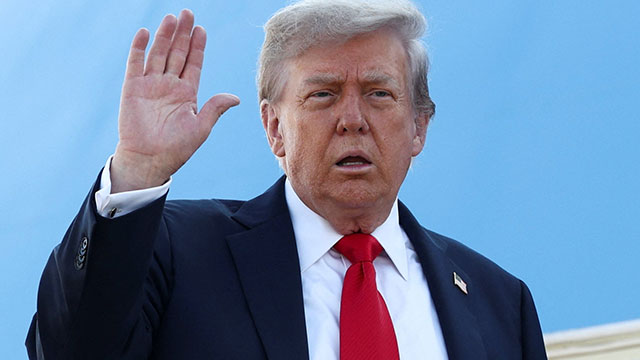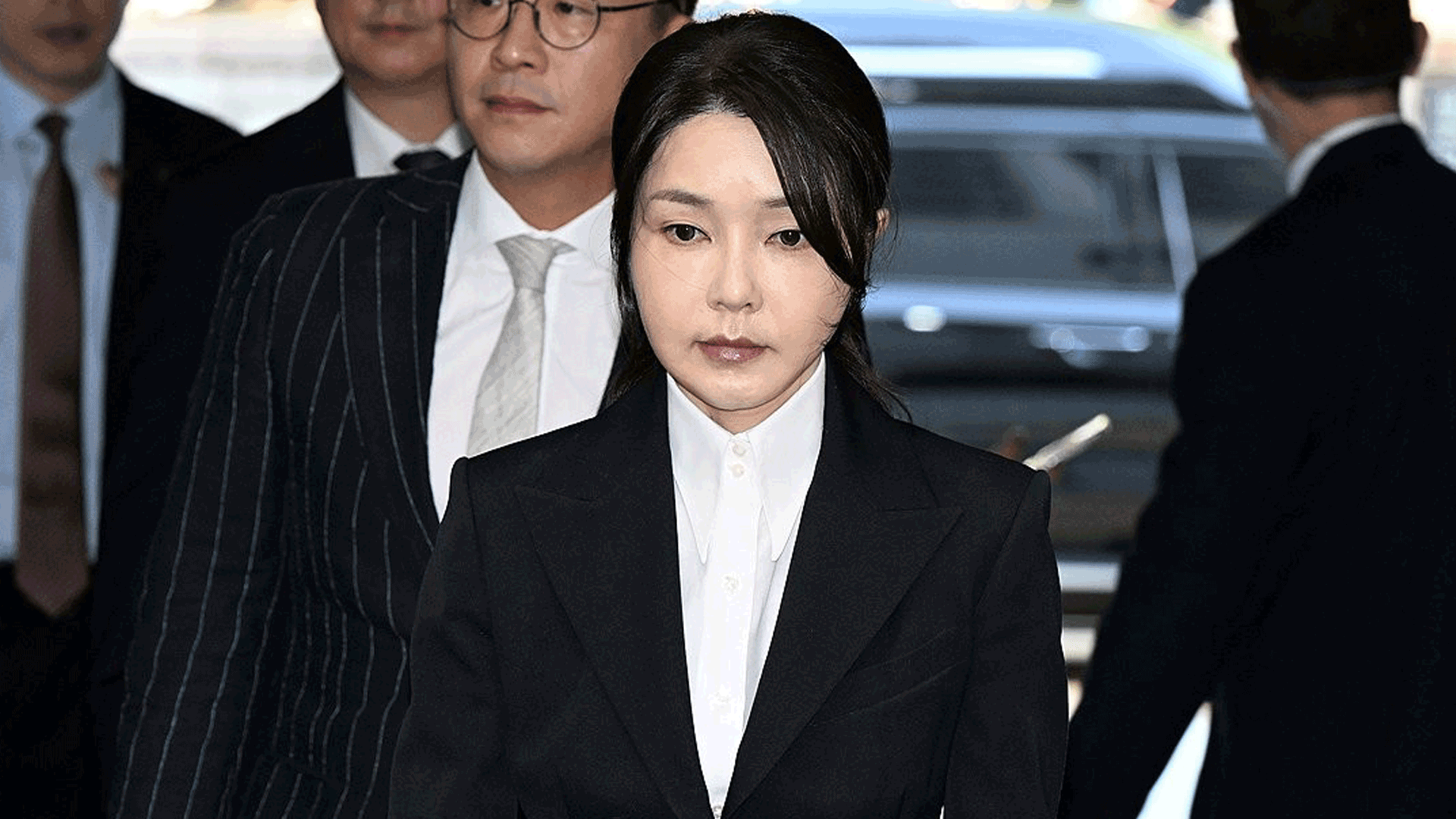[Anchor]
The Ministry of Unification is focusing on ways to build military trust, starting with the restoration of the September 19 military agreement.
Additionally, it has officially discarded the unification policy of the Yoon Suk Yeol administration, known as the August 15 Doctrine, which was criticized as a theory of absorption unification.
The Ministry of Foreign Affairs has announced plans to create a phased denuclearization strategy.
Next, we have reporter Yoon Jin.
[Report]
The remarks made by President Lee Jae Myung at the Cabinet meeting were followed in the afternoon by the Minister of Unification.
[Chung Dong-young/Minister of Unification: "We will thoroughly manage the situation and gradually build military trust through military communications and the restoration of the September 19 military agreement."]
At this point, where North Korea has not made contact, it is difficult to gain momentum for joint projects between the two Koreas, such as the mutual withdrawal of GP and the recovery of remains, which are part of the September 19 military agreement.
On the other hand, the suspension of artillery training in the buffer zone is mentioned as an area where our government can take proactive measures.
There is a possibility that North Korea may respond positively to our proactive measures, such as stopping leaflets or loudspeaker broadcasts.
[Cho Yong-geun/Former Director of North Korean Policy at the Ministry of National Defense: "During the 2018 inter-Korean military talks, North Korea strongly requested measures to stop hostile acts in the border area, so if we take proactive measures, (North Korea) will not refuse."]
The Ministry of Unification has officially discarded the 'August 15 Unification Doctrine' of the Yoon Suk Yeol administration.
The August 15 Doctrine, which aimed to stimulate the desire for free unification among North Korean residents and bring about internal change, has been criticized as a theory of absorption unification.
Foreign Minister Cho Hyun has stated that he will prepare a "phased denuclearization" strategy that leads to freezing, reduction, and dismantlement.
The goal is to create an opportunity for dialogue with North Korea in any way possible.
[Cho Hyun/Foreign Minister: "We will create conditions for dialogue on North Korean nuclear issues and seek to resume dialogue between North Korea and the U.S. and between the two Koreas."]
Last week, North Korea, through a statement by Kim Yo-jong, the deputy director of the Workers' Party, declared its intention to maintain a hostile attitude towards South Korea.
It will be interesting to see how they respond to our government's additional attempts at dialogue, which were made in connection with the Liberation Day speech.
This is KBS News, Yoon Jin.
The Ministry of Unification is focusing on ways to build military trust, starting with the restoration of the September 19 military agreement.
Additionally, it has officially discarded the unification policy of the Yoon Suk Yeol administration, known as the August 15 Doctrine, which was criticized as a theory of absorption unification.
The Ministry of Foreign Affairs has announced plans to create a phased denuclearization strategy.
Next, we have reporter Yoon Jin.
[Report]
The remarks made by President Lee Jae Myung at the Cabinet meeting were followed in the afternoon by the Minister of Unification.
[Chung Dong-young/Minister of Unification: "We will thoroughly manage the situation and gradually build military trust through military communications and the restoration of the September 19 military agreement."]
At this point, where North Korea has not made contact, it is difficult to gain momentum for joint projects between the two Koreas, such as the mutual withdrawal of GP and the recovery of remains, which are part of the September 19 military agreement.
On the other hand, the suspension of artillery training in the buffer zone is mentioned as an area where our government can take proactive measures.
There is a possibility that North Korea may respond positively to our proactive measures, such as stopping leaflets or loudspeaker broadcasts.
[Cho Yong-geun/Former Director of North Korean Policy at the Ministry of National Defense: "During the 2018 inter-Korean military talks, North Korea strongly requested measures to stop hostile acts in the border area, so if we take proactive measures, (North Korea) will not refuse."]
The Ministry of Unification has officially discarded the 'August 15 Unification Doctrine' of the Yoon Suk Yeol administration.
The August 15 Doctrine, which aimed to stimulate the desire for free unification among North Korean residents and bring about internal change, has been criticized as a theory of absorption unification.
Foreign Minister Cho Hyun has stated that he will prepare a "phased denuclearization" strategy that leads to freezing, reduction, and dismantlement.
The goal is to create an opportunity for dialogue with North Korea in any way possible.
[Cho Hyun/Foreign Minister: "We will create conditions for dialogue on North Korean nuclear issues and seek to resume dialogue between North Korea and the U.S. and between the two Koreas."]
Last week, North Korea, through a statement by Kim Yo-jong, the deputy director of the Workers' Party, declared its intention to maintain a hostile attitude towards South Korea.
It will be interesting to see how they respond to our government's additional attempts at dialogue, which were made in connection with the Liberation Day speech.
This is KBS News, Yoon Jin.
■ 제보하기
▷ 카카오톡 : 'KBS제보' 검색, 채널 추가
▷ 전화 : 02-781-1234, 4444
▷ 이메일 : kbs1234@kbs.co.kr
▷ 유튜브, 네이버, 카카오에서도 KBS뉴스를 구독해주세요!
- Gov't ends Aug. 15 Doctrine
-
- 입력 2025-08-18 23:56:34

[Anchor]
The Ministry of Unification is focusing on ways to build military trust, starting with the restoration of the September 19 military agreement.
Additionally, it has officially discarded the unification policy of the Yoon Suk Yeol administration, known as the August 15 Doctrine, which was criticized as a theory of absorption unification.
The Ministry of Foreign Affairs has announced plans to create a phased denuclearization strategy.
Next, we have reporter Yoon Jin.
[Report]
The remarks made by President Lee Jae Myung at the Cabinet meeting were followed in the afternoon by the Minister of Unification.
[Chung Dong-young/Minister of Unification: "We will thoroughly manage the situation and gradually build military trust through military communications and the restoration of the September 19 military agreement."]
At this point, where North Korea has not made contact, it is difficult to gain momentum for joint projects between the two Koreas, such as the mutual withdrawal of GP and the recovery of remains, which are part of the September 19 military agreement.
On the other hand, the suspension of artillery training in the buffer zone is mentioned as an area where our government can take proactive measures.
There is a possibility that North Korea may respond positively to our proactive measures, such as stopping leaflets or loudspeaker broadcasts.
[Cho Yong-geun/Former Director of North Korean Policy at the Ministry of National Defense: "During the 2018 inter-Korean military talks, North Korea strongly requested measures to stop hostile acts in the border area, so if we take proactive measures, (North Korea) will not refuse."]
The Ministry of Unification has officially discarded the 'August 15 Unification Doctrine' of the Yoon Suk Yeol administration.
The August 15 Doctrine, which aimed to stimulate the desire for free unification among North Korean residents and bring about internal change, has been criticized as a theory of absorption unification.
Foreign Minister Cho Hyun has stated that he will prepare a "phased denuclearization" strategy that leads to freezing, reduction, and dismantlement.
The goal is to create an opportunity for dialogue with North Korea in any way possible.
[Cho Hyun/Foreign Minister: "We will create conditions for dialogue on North Korean nuclear issues and seek to resume dialogue between North Korea and the U.S. and between the two Koreas."]
Last week, North Korea, through a statement by Kim Yo-jong, the deputy director of the Workers' Party, declared its intention to maintain a hostile attitude towards South Korea.
It will be interesting to see how they respond to our government's additional attempts at dialogue, which were made in connection with the Liberation Day speech.
This is KBS News, Yoon Jin.
The Ministry of Unification is focusing on ways to build military trust, starting with the restoration of the September 19 military agreement.
Additionally, it has officially discarded the unification policy of the Yoon Suk Yeol administration, known as the August 15 Doctrine, which was criticized as a theory of absorption unification.
The Ministry of Foreign Affairs has announced plans to create a phased denuclearization strategy.
Next, we have reporter Yoon Jin.
[Report]
The remarks made by President Lee Jae Myung at the Cabinet meeting were followed in the afternoon by the Minister of Unification.
[Chung Dong-young/Minister of Unification: "We will thoroughly manage the situation and gradually build military trust through military communications and the restoration of the September 19 military agreement."]
At this point, where North Korea has not made contact, it is difficult to gain momentum for joint projects between the two Koreas, such as the mutual withdrawal of GP and the recovery of remains, which are part of the September 19 military agreement.
On the other hand, the suspension of artillery training in the buffer zone is mentioned as an area where our government can take proactive measures.
There is a possibility that North Korea may respond positively to our proactive measures, such as stopping leaflets or loudspeaker broadcasts.
[Cho Yong-geun/Former Director of North Korean Policy at the Ministry of National Defense: "During the 2018 inter-Korean military talks, North Korea strongly requested measures to stop hostile acts in the border area, so if we take proactive measures, (North Korea) will not refuse."]
The Ministry of Unification has officially discarded the 'August 15 Unification Doctrine' of the Yoon Suk Yeol administration.
The August 15 Doctrine, which aimed to stimulate the desire for free unification among North Korean residents and bring about internal change, has been criticized as a theory of absorption unification.
Foreign Minister Cho Hyun has stated that he will prepare a "phased denuclearization" strategy that leads to freezing, reduction, and dismantlement.
The goal is to create an opportunity for dialogue with North Korea in any way possible.
[Cho Hyun/Foreign Minister: "We will create conditions for dialogue on North Korean nuclear issues and seek to resume dialogue between North Korea and the U.S. and between the two Koreas."]
Last week, North Korea, through a statement by Kim Yo-jong, the deputy director of the Workers' Party, declared its intention to maintain a hostile attitude towards South Korea.
It will be interesting to see how they respond to our government's additional attempts at dialogue, which were made in connection with the Liberation Day speech.
This is KBS News, Yoon Jin.
-
-

윤진 기자 jin@kbs.co.kr
윤진 기자의 기사 모음
-
이 기사가 좋으셨다면
-
좋아요
0
-
응원해요
0
-
후속 원해요
0










![[단독] 검찰, 건진법사 ‘관봉권’ 추적 단서 전부 유실…감찰도 안 해](/data/fckeditor/new/image/2025/08/18/332271755504098785.png)



이 기사에 대한 의견을 남겨주세요.